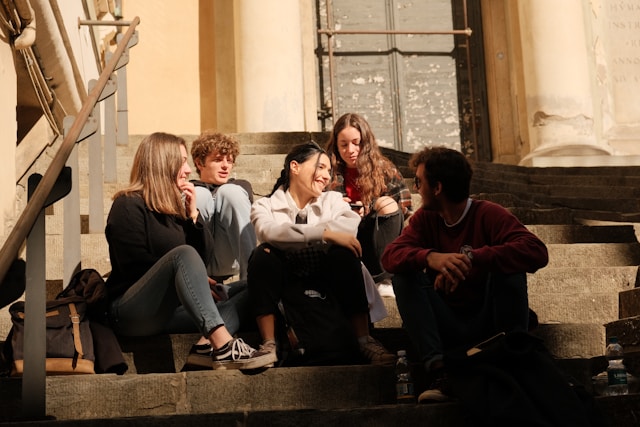

There are many foreign students choosing Italy as the destination for their university studies. According to the most recent data from the Ministry of University and Research, Iranian students lead the list (in the 2023-24 school year there were 13,068), followed by Turks, Chinese and Indians.
This abundant flow of international students is a great resource for Italy: both from the point of view of social and cultural development, as well as in addressing the problem of our country's demographic decline, and the need to renew the skilled workforce.
On the other hand, for a foreign student, living in a country with a lifestyle and culture different from one's own is an enriching journey, especially if one puts oneself in a position to make the most of this experience. The key is to find a good balance between study and social life, so as not to risk missing out on important life or work opportunities.
In this article, we have put together some practical tips for international students about to move for study. These are tips about settling in Italy: from dealing with bureaucracy, to being able to communicate with locals, to making new friends.
Having the bureaucracy in order helps you face the move to Italy with less stress and buys you time that you can devote to less tedious activities than waiting your turn in the post office queue.
Dealing with paperwork in Italy can be tiring, so it's a good idea to lean on a union like Welcome Association Italy, which can streamline the process for you.
Here is a list of some documents and resources you may need in Italy:
For example, if you need advice about choosing the right health coverage for you, you can contact WAI and receive our support.
Consider taking an Italian course before moving.
Arriving in Italy with already a basic level of Italian helps a lot in the process of integrating into the community. Making new friends as an adult is always difficult, in a new country even more so, but knowing the language creates an important initial point of contact.
Approaching a local by speaking Italian earns you countless points over someone who expresses himself only in English. Language can be a barrier or, on the contrary, an asset to integrate quickly.
If the idea of taking a language course does not excite you, you can explore other options: from Duolingo to private conversation classes, the ways to study are many and varied.
Contrary to what many people think, integrating into the community and meeting new people is not so much about being extroverted people as it is about implementing the right strategies.
He often attends activities organized by the university: orientation events, course presentation days and student associations create excellent opportunities to make friends and acclimatize to the new environment.
Libraries and study rooms at universities are a great place to meet new people. Take advantage of the Italian coffee culture to socialize during breaks.
Many foreign students lock themselves in the "Erasmus bubble" or spend time only with other international students. There is nothing wrong with that if that is what you desire, however, if your goal is to feel at home in your new Country, then our advice is to use English as little as possible. How? Say yes to as many extracurricular activities as you can. Get out of the university environment, use apps like MeetUp, MeetMe, Bumble BFF, and attend events or guided excursions to explore the area. After all, you are in the country with the largest amount of UNESCO sites in the world, take advantage of it!
Moving abroad requires a good deal of flexibility and adaptation, especially when the cultural customs of the new country differ greatly from one's own.
Italy has a rich and interesting cultural background: strict rules regarding culinary recipes (for example, the classic "no pineapple on pizza"), relaxed approach to time, warm and expressive communication.
Cultural contrasts can be seen in a variety of contexts: differences in mealtimes, socialization, study and work culture, bureaucracy, and relationship with family. Of course, you don't necessarily have to adopt Italian customs as your own, but knowing and respecting them will help you feel more comfortable in Italy.
